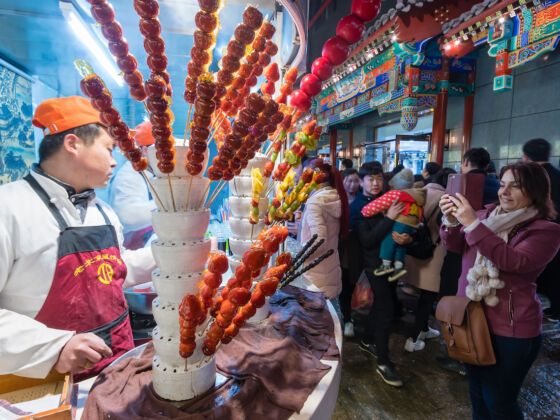1. Greasy street food
Every morning on my short walk from the subway exit to my office, I have to pass at least 20 different street vendors and hole-in-the-wall restaurants selling all manner of tasty breakfast treats – ranging from the slightly greasy to the full-on artery clogging. My favourite is the Beijing classic煎饼 (jiānbǐng) – a crunchier and ultimately oilier cousin of the French crêpe, with a deep-fried dough wafer folded inside. You can usually expect to pay only 5 RMB (less than USD $1) for one of these, unless you’re feeling a little daring and get a neon pink “sausage” in your pancake for an extra couple of RMB. Outside most subway exits in the city there will be a couple of mobile 煎饼 carts surrounded by a queue of hungry morning commuters. Other roadside temptations in Beijing include trays of steamed bread buns stuffed with meat, 包子 (bāozi), which are popular across Northern China, or deep-fried dough sticks油条 (yóutiáo) to dip into soy milk.
